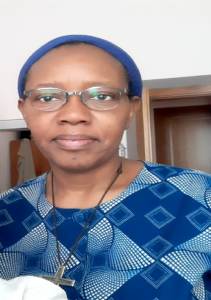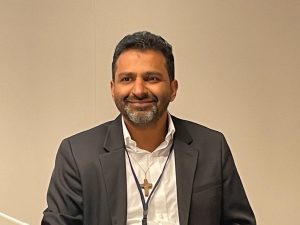Introduction
What is ICOF?
The acronym ICOF stands for “Inter-Congregational Ongoing Formation”. It is a program initiated by the Union of General Councils of the Missionary Congregations present and working in Africa. These include the Holy Ghost Fathers (Spiritans), the Missionaries of Africa (White Fathers), the Missionary Sisters of Our Lady of Africa (MSOLA), the Missionary Sisters of Our Lady of the Apostles (OLA) and the Society of African Missions (SMA). Comboni Missionaries were part of the initial steps and then they dropped out. These five congregations now make the General Board.
In this article, we briefly share with you on:
-
- the history and vision of ICOF,
- the various ICOF programmes so far and
- a brief evaluation.
History and vision of ICOF

We trace the beginning of ICOF to the first formal meeting of the General Councils of five Congregations who work in Africa on 21 Nov 2014. We said in that meeting that our missionary institutes worked on Catechesis, initial formation for priests and religious, public education and healthcare in the last century. Most of these initiatives have been owned by the local Church and the civil governments today. This reassures us that we responded to the most important needs of the society at that time.
Our experience of working in collaboration with the local church in the reality of our day led us to the following question; what are the areas the local Chur
ch and the governments will value most in the comi
ng century so that we can start breaking the ground today?
We had a long and fruitful discussion on this question and we explored more concretely the needs in the area of ongoing formation.
We made a clear separation of three categories in Ongoing Formation:
-
- Renewal programmes

- Formation of Formators
- Therapeutic help to those struggling with serious challenges
- Renewal programmes
We decided to focus more on renewal programmes. Here are the following reasons behind the choice:
-
- The local Church organises the initial formation well in almost all countries and many bishops and superiors feel the need for ongoing formation of their members but do not find affordable and easily accessible options.
- Members of our own Institutes go to Europe and America for ongoing formation. This does not look sustainable because of the growing immigration challenges, growing number of members and the costs involved. The centres in the Western world depend on participants and resource people coming from Africa, Asia, and Latin America to run the programmes.
- If we organise ongoing formation in Africa, we will be able to pool our resource people together and we will have enough participants among our institutes and we will keep it open for the local Church. It will be cost effective, the content of the programme will be more contextualised, and it will be our joint missionary contribution in Africa.
Then in the following meeting on 21 February 2015, we decided to start two programmes: a ten-day resilience Programme in Central African Republic and a one-month renewal programme in Tanzania. We chose Central African Republic because of the tension and violence the pastoral agents in the country were facing at that time.
We contacted our confreres in these two countries and explored the ways of organising the two programmes.
Then in the following meeting on 16 May 2015, we brought together the feedback received from the ground. We formed a Steering Committee in Rome with one representative from each Institute and an Executive Committee in Tanzania again with a representative of each of the institutes. The latter is the one which assures the day to day running of the programme in all its aspects from the beginning to the end.
Various ICOF programmes so far
We have three kinds of ICOF programs every year entitled as JOY-FILLED GOSPEL SERVICE: SABBATICAL PROGRAMME in English in Tanzania (6 months), JOYEUX SERVICE DE L’ÉVANGILE – RENEWAL PROGRAM in French in Ivory Coast (2 months) and RESILIENCE PROGRAM in French (2 weeks)
- The first renewal program took place in 2016 and it was for two months. Following the evaluation and the recommendation of the participants, it became a six-month programme running from January to June. This has been the case for the years 2017 to 2020.
Since 2021, the six-month programme is split into two cycles of three months. Participants can choose either of the cycles or both. The first cycle is called wholeness cycle which concentrates more on the human and personal dimension and the second cycle is called Good Shepherd cycle which gives particular attention to the pastoral dimension. Currently there is a program running for 2023. All these programmes in Tanzania are in English.
2. For French speaking participants, we run a two-month renewal programme in Ivory Coast. This program started in 2018 as a one-month renewal program, and then in 2019, 2021 and 2022 we ran it for two months. In 2020 the program was cancelled due to the COVID pandemic. During these two months, the program concentrates on the human/personal and pastoral dimensions of the participant.
The Resilience programme in Central African Republic had to wait till 2017. Pope Francis was visiting the country in 2015 and we decided to give him the precedence and we had a few more practical challenges too.
This third programme on resilience aims at empowering the participants with the capacity to endure and navigate the trials of life, the capacity to bounce back, to make a new start after going through stressful and/or traumatic situations. They also receive some skills and tools to enable them to help the people going through similar situations. We organised three sessions on resilience: Central African Republic (7th to 17th November 2017), Ivory Coast (1-16 September 2021), Burkina-Faso (2-16 September 2022). We are planning one for Nigeria in November 2023.
Evaluation – Positive feedback
Overall, the program seems to have had an impact on most of the participants. Both the participants and the staff members clearly notice the changes that take place in the participants.
Some participants have sent messages to express their gratitude for having attended the program.
Here are just a few examples:
-
- All the modules are so rich that they respond to my needs as a religious and to the way we are called to live the mission today.
- Words cannot express my feelings of gratitude! I am well prepared for my next appointment!
- A profound and enriching experience that allows me to face the future with hope
- The sabbatical program was a fruitful and refreshing one. The courses were all well-arranged and organized and were able to meet my needs at the right time. The courses were all very rich and resourceful.
- The many courses and workshops that were offered were very beneficial and aimed at helping the participants learn new skills and get a new awareness of current issues and many exercises to keep healthy in future assignments.
We got very positive feedback from the communities of the participants. They could see a visible transformation in the people who attended the programmes.
Many participants found deeper healing.
Quite a few people were able to find joy and meaning in ministry and were able to take up pastoral assignments happily.
Some in leadership positions attended the renewal programmes mainly as part of their transition. They found the programme extremely helpful.
Participants
Catholic pastoral agents with experience in ministry for seven to twelve years are welcome to apply once recommended by their bishops/superiors.
Each year we post on our web site the leaflet with information concerning the upcoming programs. These include qualifications for applicants, contacting address, fees and scholarships, programme contents, the opening/closing dates of the program and much more. You can visit us on www.icofprogram.org
Challenges
-
- Personnel – trainers: We are in the process of getting more of our members trained in the area of ongoing formation to be able to serve in this ministry. We are managing it quite well for the time being. This is an ongoing challenge to renew and expand our teams.
-
- Participants:Renewal programmes are meant for everybody. Pastoral agents need more awareness. Men seem to be slower than women in seeking such programmes. Financial question is part of the cause for some diocesan clergy, though this is not the only reason for not taking part in this program, and other causes differ from one diocese to another.
-
- Place:In Tanzania, we do not have a place of our own. We rent the service of Canossa sisters for the past few years. We are still in the process of finding a permanent solution. In Ivory Coast we have a permanent centre.
-
- Money: The member congregations have a small common fund and we decided early on to try to run the programmes in a self-sufficient way for the sake of sustainability. We are able to balance the books every year. Though we do not intend to make any profit, the fee looks big for many local congregations.
We tried to get external funding to subsidise and we have not succeeded yet. We hope to be able get some regular subsidy so that we will be able to serve all those who are in need.
-
- Vision:Some pastoral agents need not only renewal programmes but also serious therapy and rehabilitation. We did not want to combine renewal and therapy. We are still brainstorming to see how to support pastoral agents struggling with challenges that need more serious therapy.

